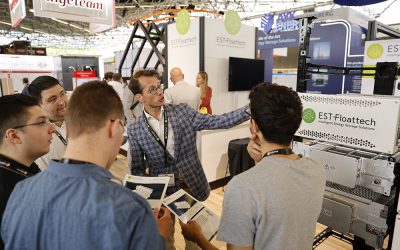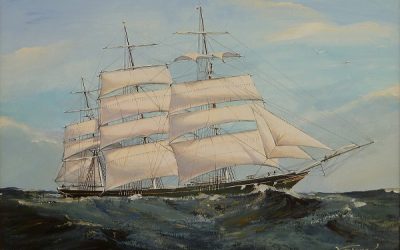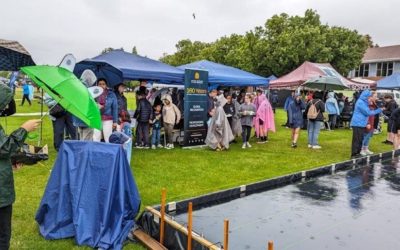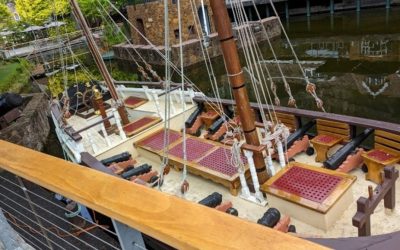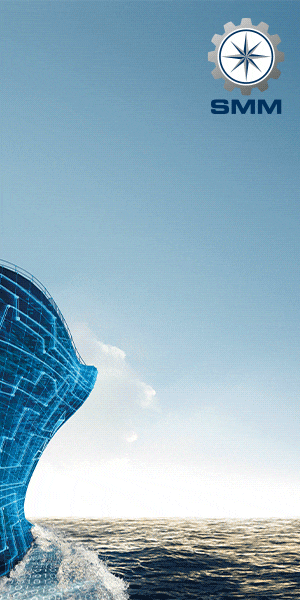The Naval Architect: October 2020

Once seen as the future power source for the marine industry, modifications to internal combustion engines allowing a multiple fuel mix appears to have pushed fuel cells to the fringes. There are, however, projects still underway that may yet see fuel cells play a bigger role in the future of marine power.
ABB has always been an enthusiastic proponent of fuel cell technology. Two years ago it began a collaboration with Ballard Power Systems to ‘develop a 3MW system that will fit within a single module no bigger in size than a traditional marine engine running on fossil fuels’.
Such a system still has to materialise but, in April 2020, ABB made another announcement about a collaboration, this time with French company, Hydrogene de France (HDF). ABB and HDF Energy are planning to work to establish manufacturing of megawatt scale fuel cell systems for the marine market, based on Ballard’s fuel cell technology, at HDF Energy’s new facility in Bordeaux, France.
The goal of this ABB-Ballard collaboration under the 2018 memorandum of understanding (MOU) is development of commercial ready MW-scale containerised PEM fuel cell power systems, where these systems could be used in a variety of ways. This includes provision of power for hotel operations while cruise ships are docked at port as well as the provision of primary propulsion power when ships are at sea.
Ballard also intends to focus on sub-MW marine market opportunities at its new facility in Hobro, Denmark, which opened this year. In September, it unveiled the FCwave fuel cell as a 200kW modular unit that can be scaled up to multi MW levels. It is intended to provide propulsion power to small vessels such as ferries, fishing and inland craft.
Ballard lists the features of the FCwave as having an expected lifetime operation of 30,000 hours, a high system efficiency greater than 55% and light weight at around 4.4kg/ kW. Range is limited only by the amount of hydrogen that can be carried. Ballard is currently engaged in the type-approval process with DNV-GL.
Fuel cells are also seen as having potential in Japan with at least two projects underway. Since last September, Samsung Heavy Industries (SHI) and US fuel cell maker Bloom Energy have been working to develop and commercialise large ships powered by solid oxide fuel cells (SOFC). Samsung said at the time that its goal was to replace mean engines and gensets with fuel cells.
SHI has been actively participating in all of the relevant activities during joint development, from early studies to project completion, in order to build highly efficient fuel cell powered ships. In alignment, Bloom Energy has created a dedicated, cross-functional team of engineers to adapt Bloom Energy’s Servers to the unique requirements of the marine environment. The aim is to present a working system in 2022. DNV GL has already given Samsung an Approval in Principal for fuel cell powered Aframax tankers and plans are underway to obtain the same for an LNG carrier.
Another Japanese project operates under the title e5 Lab and involves ship operator MOL. This project has aims to develop a fuel cell powered car carrier that would also be equipped with a battery system. Recognising that there are limitations for hydrogen fuel to be carried in sufficient quantities, which makes ocean trading difficult, the e5 Lab project envisages LNG as the main fuel.
Not yet on the scale envisaged by its fellow countrymen, Yanmar, which is best known for its small four-stroke diesels, has reinvigorated a project established over two years ago when it trialled a fuel cell on a small boat. In June 2020, Yanmar Holdings and its subsidiary Yanmar Power Technology announced the development of a hydrogen fuel cell system for maritime applications based on fuel cell technology for automobiles.
The company has signed an MOU with Toyota Motor Corporation to develop a hydrogen fuel cell system for maritime applications based on components including high pressure hydrogen tanks on Mirai, a hydrogen fuel cell automobile manufactured by Toyota. With a view to realising an easily installable module with superior cruising range, Yanmar aims to install the maritime fuel cell system on its own boat and start a field demonstration test by the end of this year.
